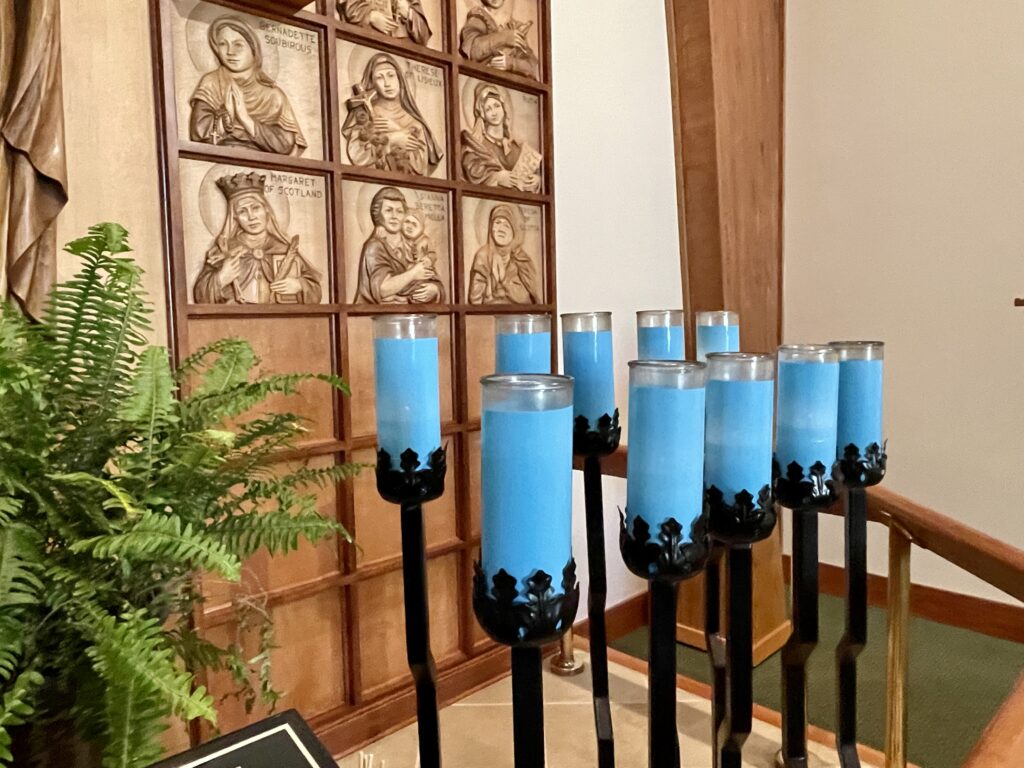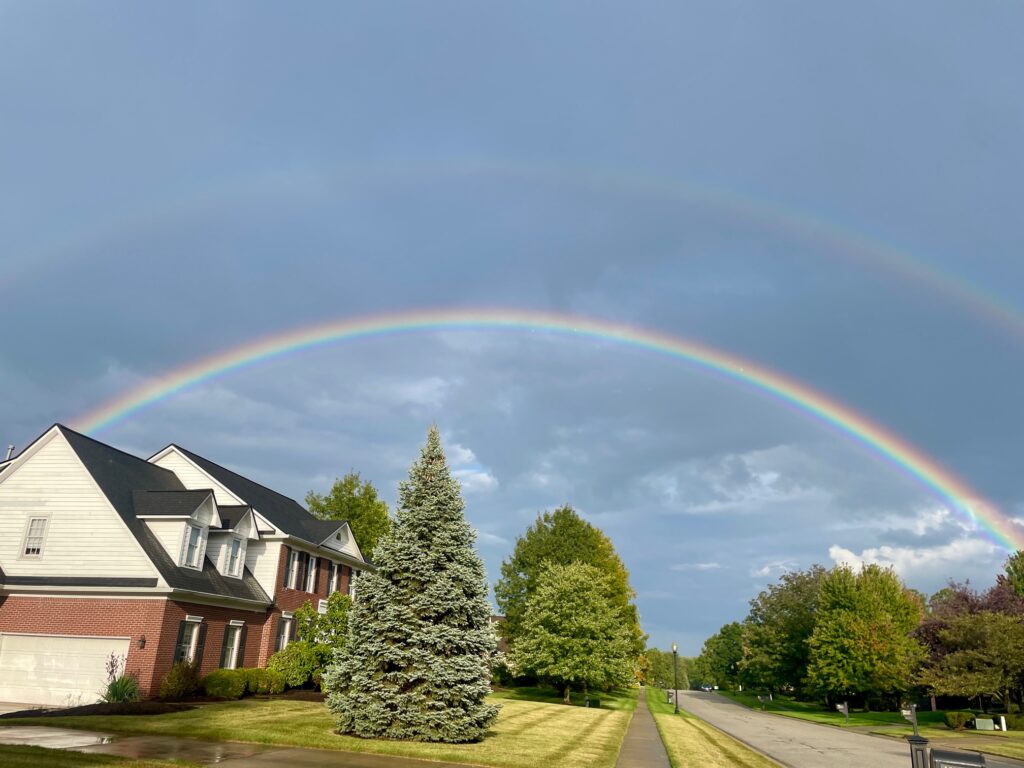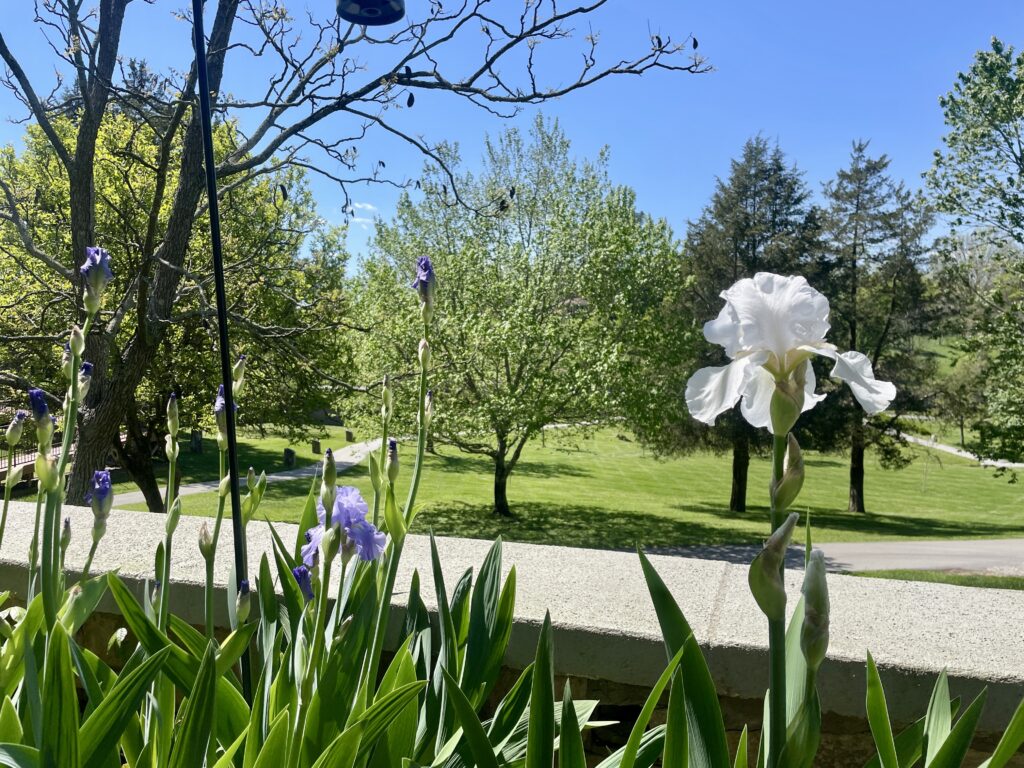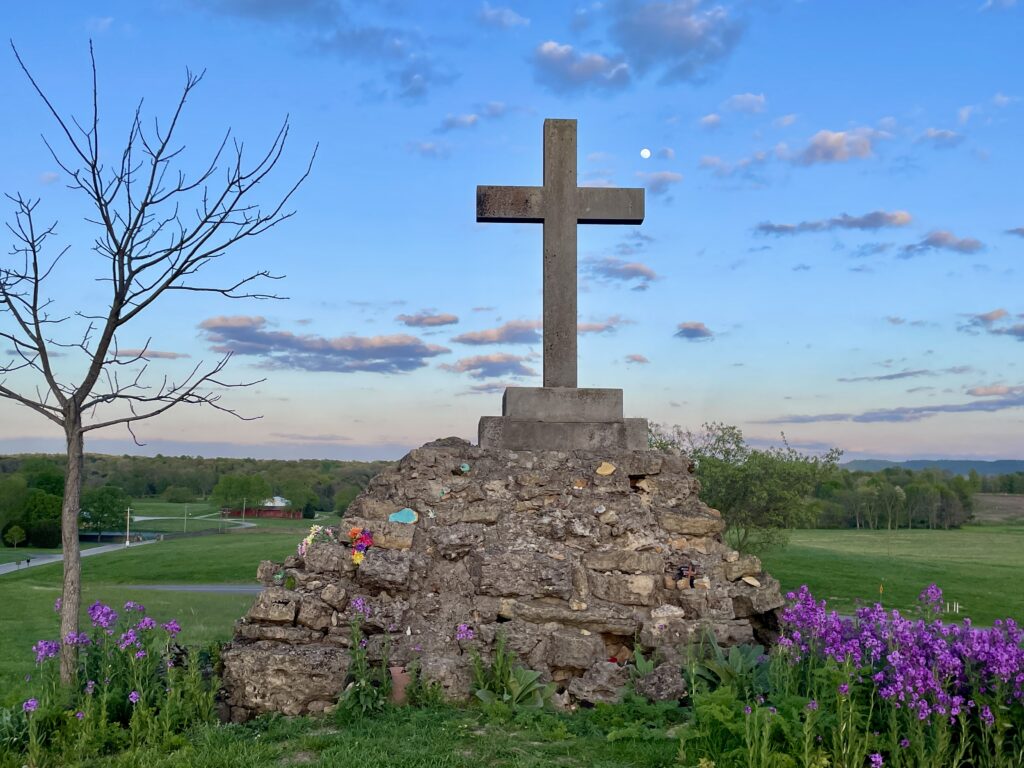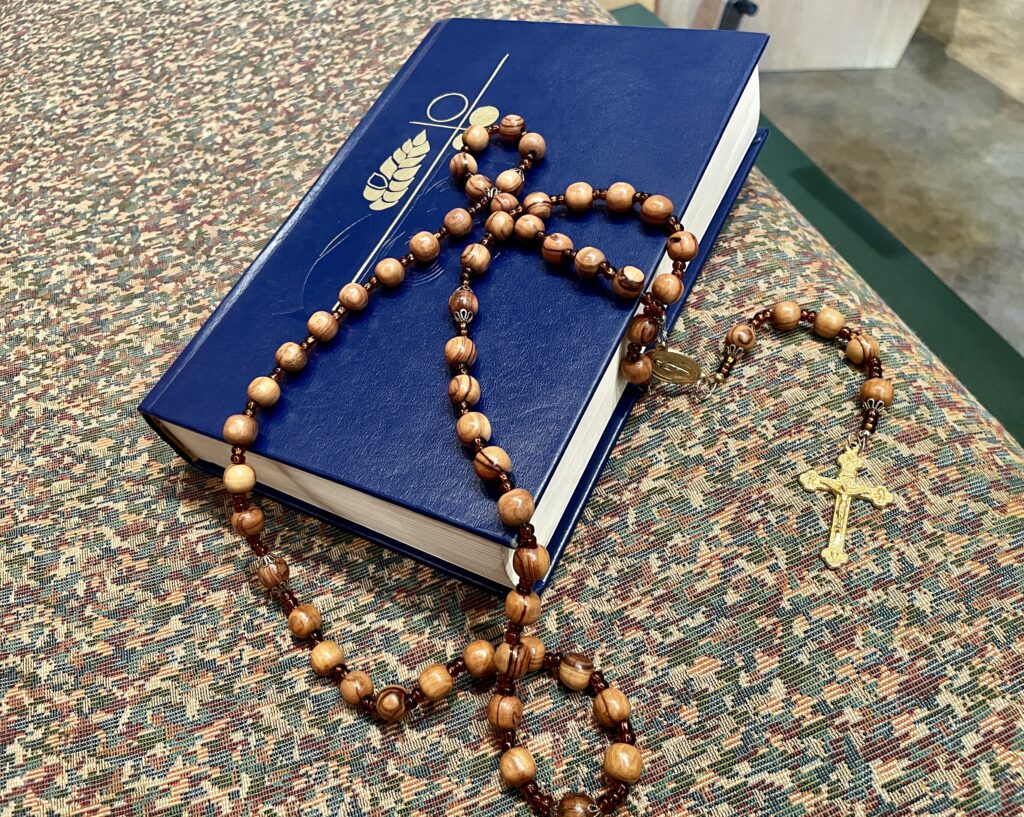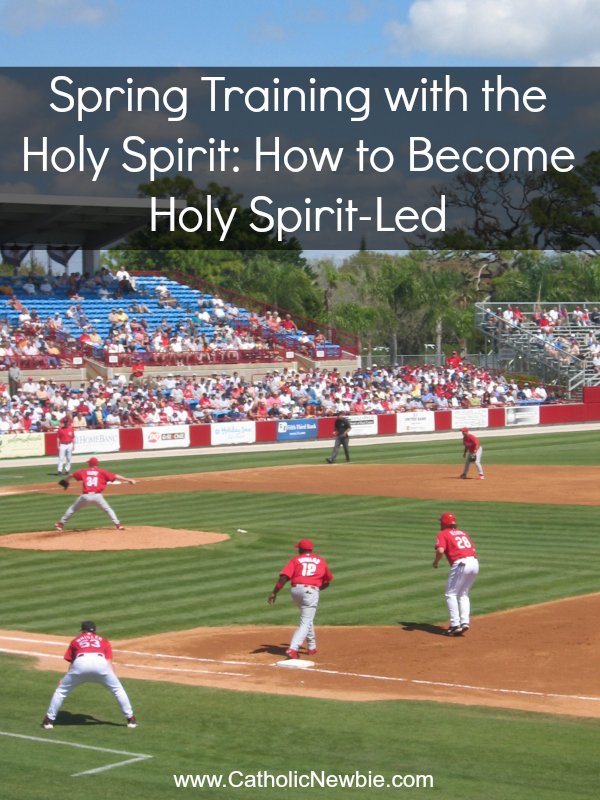During the pandemic when we were all in lockdown, I took the opportunity to rediscover what things I wanted to add back into my life after much of it was taken away – and which things I wanted to leave behind.
One of the biggest things I discovered during this period was praying the Liturgy of the Hours. Second to attending mass, praying the Liturgy of the Hours is the best way to plug yourself into the liturgy of the Church and strive toward holiness and sainthood.
I’ve tried to pray the Liturgy of the Hours at different times since converting in 2013, but it just didn’t “stick” and sadly, still didn’t stick entirely after lockdown ended.
The prayers felt dry and I felt like I was just “reading the words,” which is how another friend described to me her experience of praying the Liturgy of the Hours.
But things have changed! Let me show you why as lay people, we are also called to this universal prayer of the Church, and perhaps if you’ve had that same “dry” experience, let me offer some tips for how to pray the Liturgy of the Hours so it can become more meaningful…
What Is the Liturgy of the Hours?
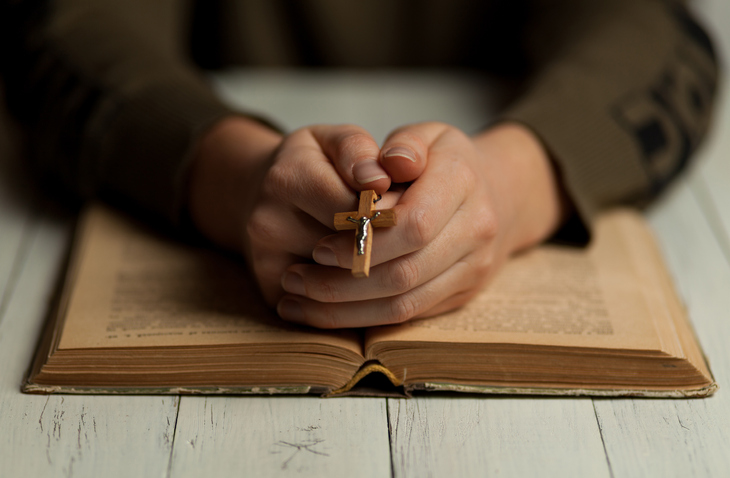
Though I’m now a 10-year and counting member of the Catholic Church, it was only about three years ago that I really began to understand what the Liturgy of the Hours truly is.
The Liturgy of the Hours is the “universal prayer” of the Church that takes place multiple times throughout the day, including 6 a.m., 9 a.m., Noon, 3 p.m., 6 p.m., 9 p.m. and midnight. Religious (sisters, brothers, monks and nuns) pray the full Liturgy of the Hours, much of it while gathered together, while priests and bishops are only called to pray a few of them throughout the day.
I’ve visited the Abbey of Gethsemani in Kentucky where the monks actually get up to pray the middle-of-the-night prayer at 3:15 a.m. EVERY DAY. Can you imagine? That’s dedication!
This post contains affiliate links for recommended books, which I may earn a commission to help support this blog if you make a purchase after clicking through. Thanks for your support!
Vatican II calls lay people to also pray this most holy of liturgies that most closely connects the Church and is second only to the praying of the mass.
When you pray the Liturgy of the Hours, you are praying with Catholics ALL OVER THE WORLD, including bishops, cardinals and the Pope. How very cool!
The Liturgy of the Hours is a collection of Psalms, Canticles (think Mary’s Magnificat and Zechariah’s canticle), Bible readings, hymns, prayers and even readings from the saints, fathers and Doctors of the Church. They typically take between 5 to 10 minutes to pray alone or could take as long as 20 or 30 minutes when they are sung and prayed in community.
You don’t have to pray the “hours” at the exact time, but somewhere near the intended time is good. But, for example, you could pray “Morning Prayer” (called Lauds) whenever you get up in the morning or after attending daily mass in the morning and “Evening Prayer” (called Vespers) after dinner or a few hours before going to bed. “Night Prayer” (Compline) is designed for you to pray it just before going to sleep and is shorter and easier to remember.
And don’t worry, if you’re praying alone, no need to sing the hymns (how would you know the melody anyway?). Just read them like a poem.
The Office of Readings
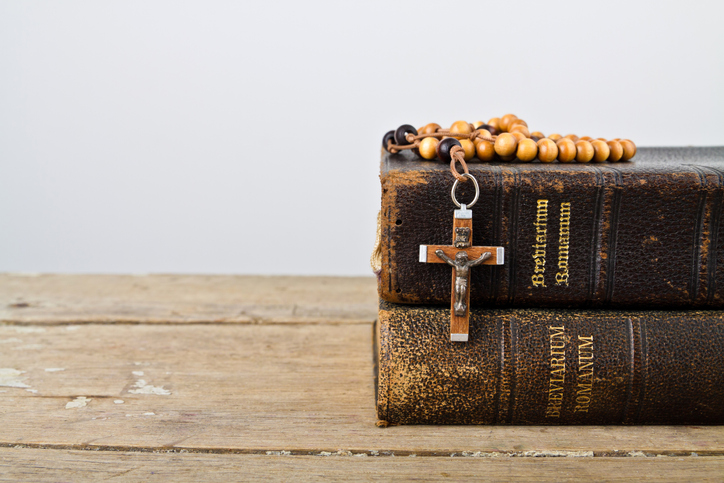
One facet of the Liturgy of the Hours that I did NOT understand is what’s called the “Office of Readings.” You can pray this set at ANY time of day.
This is one of my favorites, because one of my charisms is “learning,” and this one is FULL of learning.
In fact, one of my theology professors recommended as theology students we pray this daily to ensure we are fully immersed in prayer as much as we are study.
In addition to the hymn, prayers and psalms, the Office of Readings gives you a MUCH longer Bible reading and follows a sequence, so you are reading parts of Job all together or the story of King David or the judges all together, etc.
Then it’s followed by my FAVORITE part: a writing from a saint or Doctor of the Church. These readings are true gems. They are readings most people would have no idea where to find by themselves and are SO thought-provoking and interesting.
For example, on St. Thomas More’s feast day (he’s a martyr), we read a letter he wrote to his daughter while he was imprisoned and didn’t know if he would be killed for not adhering to the religion of the state. It’s one of my favorites.
He wrote…
“Nothing can come but what God wills. And I am very sure that whatever that may be, however bad it may seem, it shall indeed be the best.”
Isn’t that incredible to take a peek into a personal letter from a saint on his deathbed? Amazing!
There’s also plenty from St. Augustine, so wise in explaining our faith, as well as St. Gregory the Great, St. Bonaventure, St. Teresa of Avila and again, readings from saints on their feast days.
If you want to grow in the knowledge of your faith and grow in prayer, this is an AWESOME way to do it.
Why Pray the Liturgy of the Hours NOW?
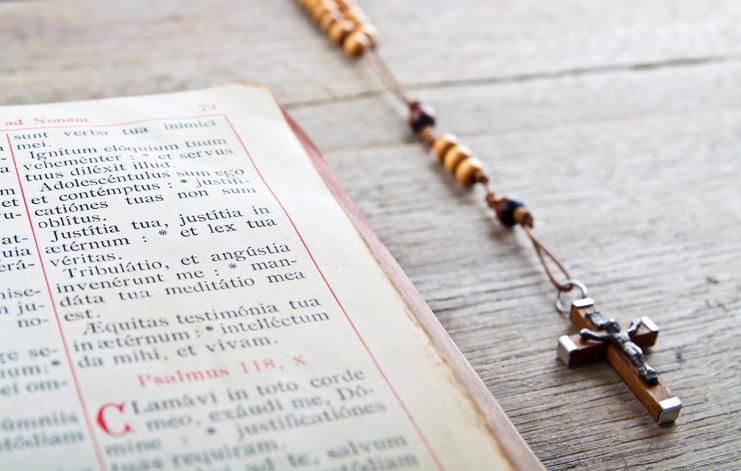
I personally feel extremely called to pray the Liturgy of the Hours, and I feel closer to God than ever.
I see much more clearly how he is guiding me and I see his directions for me everywhere. So much so that it almost seems ridiculous and indicates his unending generosity and tender care.
Vatican II says that praying the Liturgy of the Hours is arranged such that “the whole cycle of day and night can be consecrated through the praise of God.” (Sacrosanctum Concilium, Chapter 4: 84) and that “the purpose of the [Divine Office] is to sanctify the day.”
We are CONSECRATING and SANCTIFYING our ENTIRE life, day and night, by praying the Liturgy of the Hours. No wonder it brings about a closeness to God!
We live in a challenging culture, which has disconnected itself from God, making each person his own god with the perceived ability to chart his own happiness and determine what’s right and wrong for himself. Yet, so many of these people certainly aren’t joyful or even happy.
I heard a great quote from a talk given at the McGrath Institute for Church Life at the University of Notre Dame about St. Teresa of Calcutta (Mother Teresa), noting she “gave up happiness to seek joy.” I love that…
We know that we will only find our true joy in God, and it’s a joy that transcends through trials and tribulations whereas happiness is often aiming for an absence of suffering, which we know we cannot escape in this life. This joy manifests itself as a deep internal peace through trust in God and surety that He is leading us along the right path.
I personally feel evil at work in a deep and profound way with grave attacks on the Church, on the family, on our ability to gather as Christians to receive the Eucharist during the pandemic, to pray and just to connect, an essential part of the Church.
Of course, God is working good through all of this, but I think we must take up our cross and join the battle, and the best way to do so is through prayer.
In fact prayer can effect much more than actions, according to some of the great teachers of our Church. In the book, “The Soul of the Apostolate” by Jean Baptiste Chautard, he says, “A short but fervent prayer will usually do more to bring about a conversion than long discussions or fine speeches.”
He goes on to say that a single burning prayer of St. Teresa of Avila converted 10,000 heretics and quotes a Chinese bishop as saying, “Ten Carmelite nuns praying will be of greater use to me than 20 missionaries preaching.”
I can’t resist sharing two more quotes from that book…
“It is their [meaning nuns, sisters, monks and brothers] secret but active love, which awakens the voice of mercy in every part of a world of sinners.”
“[A cloistered nun’s] fingers play upon the keyboard of divine forgiveness and of the eternal lights; this silent and lonely soul presides over the salvation of souls and the conquests of the Church.”
And I personally felt that on my silent retreat at the Abbey of Gethsemani. It seems that these humble monks, who have been praying seven times a day for the last 150+ years, are holding the world together in their prayer.
Vatican II Invites the Laity to the Divine Office
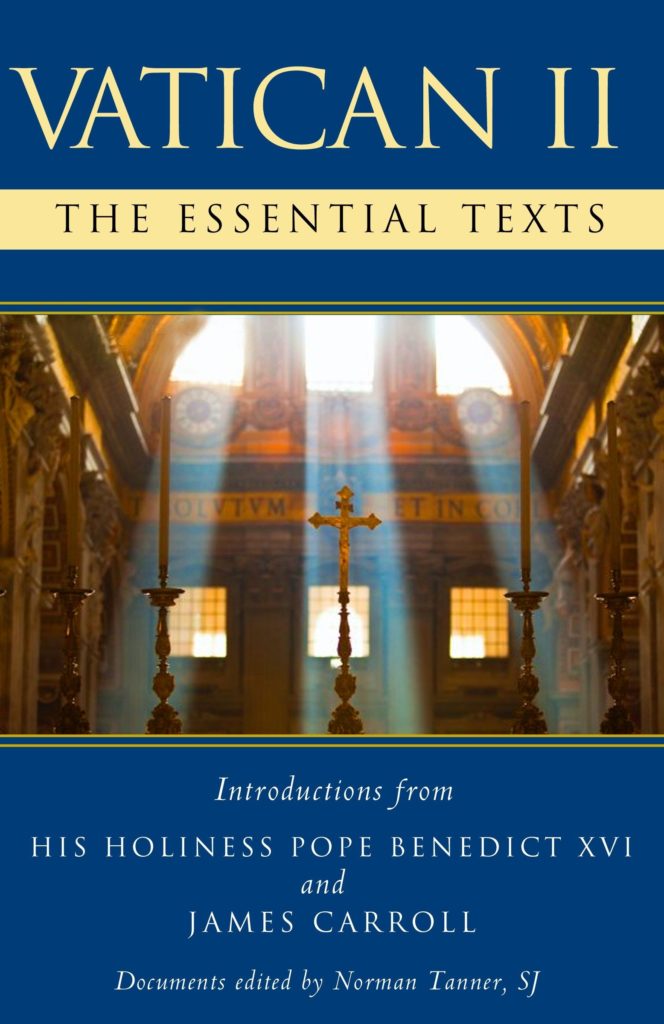
What first inspired me to start praying the Liturgy of the Hours again — and with regularity — was a brilliant podcast from Brandon Vogt and Father Blake Britton. It’s called “How (and Why) to Pray the Liturgy of the Hours,” and it’s part of their awesome Burrowshire Podcast, which is sadly now retired, but you can still listen to the existing episodes. I highly recommend it!
They explain how the millennial and Gen Z generation, especially, though I’m part of Gen X and feel we are a part of that, as well, will be the ones to put the teachings of Vatican II in place in the world.
Vatican II sometimes is associated with the impression of “modernizing” the Church too much, but I recently read the documents, and it’s an incredibly easy read that in no way comes across that way to me. In fact, it’s a stunningly beautiful document.
What Vatican II is doing is actually taking the Church back to its earliest days instead of the tradition that developed and that was in use before Vatican II. Vatican II is going back to an earlier tradition direct from the apostles and those who knew them. So it’s actually the opposite of “modernizing”.
I recommend reading Vatican II for yourself, as well, so you know where we’re called to take Catholicism into the future. It’s really like a mini-Cathechism.
Vatican II specifically calls the laity (non-priests and religious) to greater participation in the liturgy and life of the Church, including the Liturgy of the Hours.
Here are some of the things Vatican II (in the document Sancrosanctum Concilium) has to say about the Liturgy of the Hours (also called the Divine Office):
It is “the hymn which is sung in the realms above throughout every age” and that you are joining Jesus in “the divine singing together of a song of praise.” (Read my take on why praise should be a part of your prayer).
“The Divine Office is also a source of holiness and of nourishment for personal prayer insofar as it is the public prayer of the Church.” (Chapter 4: Paragraph 90)
“The Divine Office is the voice of the Church, of the whole mystical body, praising God in public.” (4:99)
“It is recommended that lay people also recite the Divine Office…” in addition to priests… as a group or alone. (4:100)
The Practicalities of How to Pray the Liturgy of the Hours
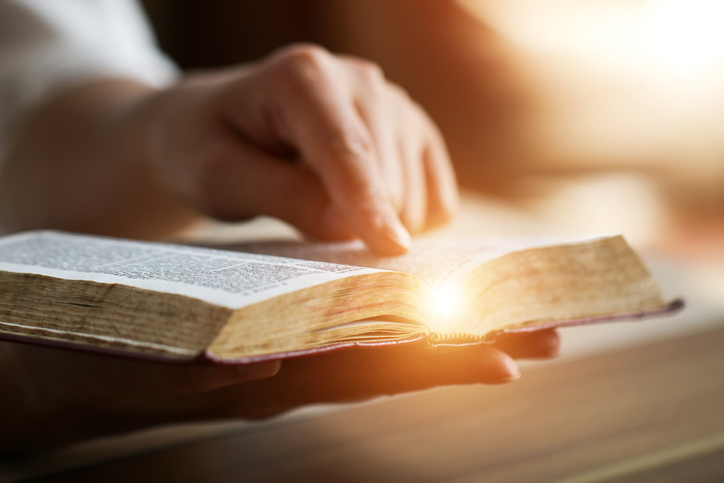
As most things that you truly want to add into your life, it must become a habit. And habits are most easily developed — and kept — when you attach the activity to something else you’re already doing, part of your daily routine.
My Liturgy of the Hours schedule looks like this:
- Morning prayer (Lauds) after waking up and having breakfast
- Daily Mass at 9 a.m. – Office of Readings
- Vespers on days when I go to Adoration or take an evening walk
- Night prayer (Compline) before going to bed
I attach morning prayer to my morning routine, part of the activities I do before beginning my work day. If I go to morning mass, I’ll usually take time to read the Office of Readings there before mass begins.
Lastly, night prayer takes place before I go to bed. The trick here is to go to bed before I can barely keep my eyes open, when I’m more likely to skip praying night prayer.
It doesn’t need to be anything complicated. And if you miss one, no big deal. Just get back to it at your next scheduled time.
And after visiting the Abbey of Gethsemani where I heard the monks chant the Liturgy of the Hours multiple times a day, I kind of got the hang of the chant ;-). It’s really quite easy: one note for the first line and then the same note, but go down at the end of the second line and then rotate back and forth. I am no singer, but have been able to master this.
I find I enjoy it so much more if I chant the prayers. It really makes them come alive!
To get the hang of it or to “chant” along with someone else, you can listen to them on Spotify created every day by Paul Rose. It’s called “The Liturgy of the Hours: Sing the Hours” and is beautiful to listen to, plus you can learn some Latin, learn the chant and follow along with the words he is singing.
I think you’ll find, like me, that you miss it when you don’t pray it and that the fruits of this prayer are tremendous!
Resources
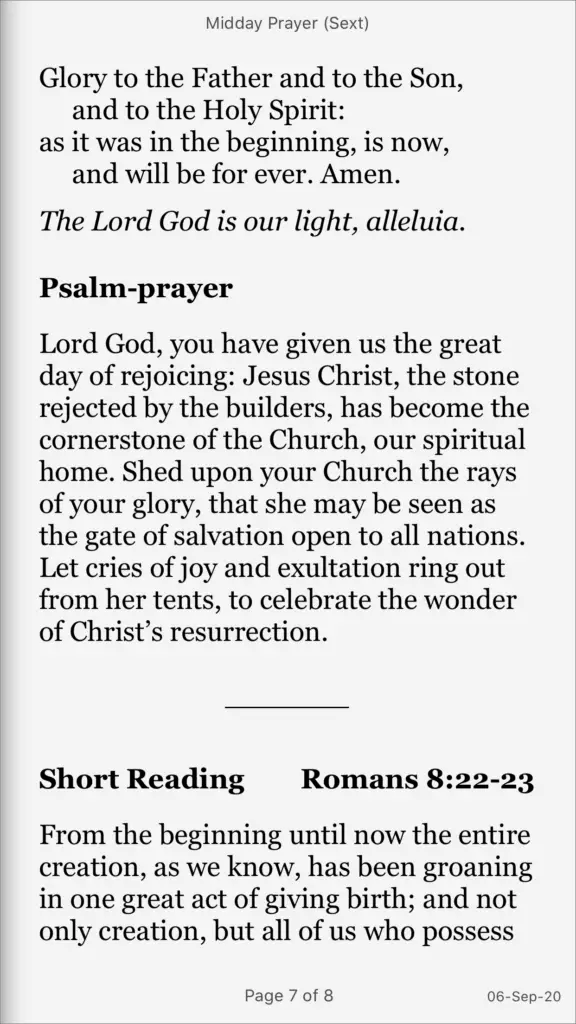
The Universalis App
In terms of where to find the Liturgy of the Hours so you can pray them, I advise using the Universalis app. It’s $10 for one year, but wonderful and it makes it super easy to pray. It also has some other nice features, as well, in addition to the Liturgy of the Hours, that encourages you to stay in tune with the Catholic Church’s Liturgical Calendar (like saints feast days, etc.).
I’ve also discovered that Universalis now has a wonderful podcast where its creator explains the feasts and celebrations of the Church over the coming week and explains the history and various aspects of the Liturgy of the Hours. Super informative! Plus, he has a British accent, and who doesn’t enjoy a good British accent ;-).
You can also opt for Word on Fire’s book version of the Divine Office (another name for the Liturgy of the Hours) which is a subscription that comes in the mail each month.
I personally don’t like the book version. I like to be able to do it on the go, while walking, at church, anywhere, which is easiest to do on my phone. Plus, if all I have to do is open an app, and click on the hour I want to pray, I’m much more likely to do it!
Laudate is a free app that has the Liturgy of the Hours as an option, but they don’t have the official translation that religious pray. I found I did not like their translation, and praying with Universalis instead made all the difference.
Universalis also has a free one-month trial via their app “Catholic Calendar,” so you can see if you really want to delve into this or not.
If you want to learn more about the Liturgy of the Hours in a very easy-to-read approachable manner, I highly recommend reading “The Everyday Catholic’s Guide to the Liturgy of the Hours” by Daria Sockey.
You may also want to take a look at what the USCCB has to say about the Liturgy of the Hours.
Questions? Post them below!
